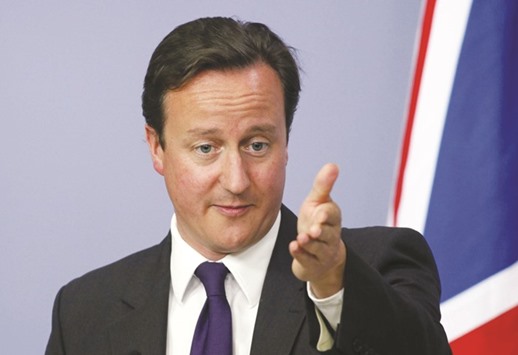A leak from Brussels yesterday revealed the draft deal negotiated by David Cameron has been subject to a series of changes by other leaders.
Downing Street officials seemed relaxed with the amendments, which they said left the prime minister’s four key goals for EU reform fully intact.
Among changes, the new draft would make it harder for countries like France and Germany to pull the so-called emergency brake to curb migration.
It suggests the new power would be most “legitimate” for states that failed to make use of temporary transitional controls when countries like Poland joined the EU, which were only the UK, Ireland and Sweden.
However, some critics feared this might also limit Britain’s ability to pull the “brake” more than once, because the transitional powers were one-offs.
New language on the importance of “sincere co-operation” to help the single currency was also ringing alarm bells in case it increased pressure on the City of London to conform with future rules designed to benefit the euro.
Another clarification prevents the UK from reducing the pension paid to EU citizens who work in Britain but go home to retire.
However, this was never one of Cameron’s demands.
Another declares that political integration “enjoys widespread support in the Union”, despite Cameron’s opt-out from ever-closer union.
It also recommits countries like Poland to adopt the euro in future.
European Council president Donald Tusk sent out the latest version with exactly a week to go to a summit where the 28 leaders will attempt to make Cameron’s reforms legally binding, paving the way for a June 23 in-out referendum.
Downing Street sources called them “relatively minor technical changes”.
One source said: “The substance has not changed. Solutions in the four areas remain on the table, untouched.”
But Matthew Elliott, of the Vote Leave campaign, claimed Cameron’s achievements had been “watered down” and added: “Worse still, the proposed deal now contains hidden nasties that will be used to undermine British interests.”
Labour’s shadow foreign secretary Hilary Benn yesterday said the case for the EU “is stronger now than ever” in a speech. He mocked Eurosceptics for seeking to “close the doors and wish that the rest of the world would go away”.
Tusk said the threats confronting the EU were “like the day before World War I”.

David Cameron
